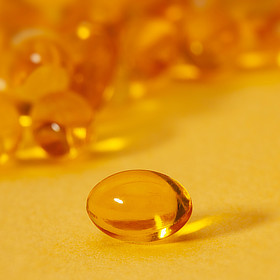Supplements article rebooted
I have continued to work on major upgrades to some of my older articles, and it’s time to announce another rebooted article: my supplements page, one of the oldest and most neglected on the site. This was one of the worst victims of how thin-spread I got in the early twentyteens. It was probably overdue for revision in 2012… and then I got distracted by other topics for, oh, most of a decade. Anyone who respects my work who looked at that content would have thought, “Hmm, this doesn’t seem to be up to Paul’s usual standards.” Eek! 😬
This is a weakness of PainScience.com, probably its greatest weakness as a resource: although I update pages constantly, it is still a small business, and I cannot possibly keep up with everything. Some topics do fall behind, and a few fall way behind. This was probably one of the worst ever cases of that.

I came close to trashing the supplements page altogether rather than trying to rescue it, because it was a huge writing and publishing challenge to bring it up to speed. The citation wrangling alone, egad! And, somehow, several key points need to be made about almost every supplement without being tedious:
- The evidence is conclusively negative or supposedly promising but actually just pathetic and biased. (This is the reason for my recent cranky post about “promising” evidence — I was drowning in it.)
- The relevance to pain is mostly very poor. Some supplements do have proven benefits for certain situations, but not a single one is clearly a win for people with any kind of pain. Not one.
- There are safety concerns with most of them… even without considering contamination.
- But then there’s also product contamination/adulteration, because Big Suppla is an unregulated profiteering nightmare that makes Big Pharma look like it’s managed by Mr. Rogers.
It’s hard — really hard — to make all that useful and interesting for each of more than a dozen supplements that people routinely take for pain.
But I could not give up. It’s too an important topic.
A badly needed skeptical perspective
Whether they know it or not, people really need a skeptical take on supplements that is (of course) shockingly lacking from most other sources… even many that should know better. Some seemingly credible sites are parroting that empty “promising” spin on the science as if they own shares in the Mighty Supplement Profit Machine corporation (and maybe they literally do).
But I have no such shares, and my bullshit detector starts smoking from overload everywhere I point it in this field. I owe it to my readers to share what I know — sometimes repeatedly, in different ways.
So I did not give up. And I think the page is fine shape now. Some other ideas it digs into:
- Anti-inflammatory nutrition vs. supplements
- Ergo-what? Performance, fatigue, and pain
- But it worked for me! The role of anecdotes and testimonials
- Big Suppla: Large supplement corporations are not only just as bad or worse than the pharmaceutical ones, many of them are the same corporations
- The Multi-Level Marketing Connection: Supplements and Fraud
P.S. So is the article completely skeptical and “negative”? No, actually, not completely. You’ll note a few 👍 in the table of contents, actually. But the good news is mostly specialized and limited — for instance, creatine definitely does what it says on the tin (fights muscle fatigue), but it’s a benefit that’s almost entirely for serious weightlifters.